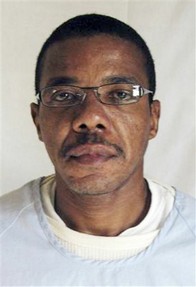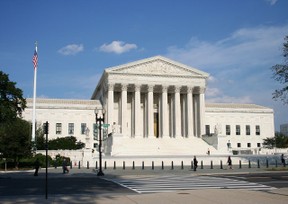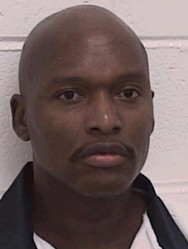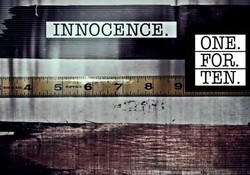The Judge went on to say, 'As for the random few for whom execution does become a reality, they will have languished for so long on Death Row that their execution will serve no retributive or deterrent purpose and will be arbitrary.'
He then provided several pages of background information about the state of the death penalty in California, including reams of legal footnotes in support of the grim facts thus recounted. It all made damning reading.
Judge Carney estimated that it takes an average of 17.2 years for due legal process to take its course, from first death sentence to actual execution. This was a gap which was growing wider each year with no evidence of the trend reversing. For most entering Death Row right now, the delays are likely to take more than twenty-five years.
It was far more common for inmates of Death Row to die of other means than via the State. Between 1978 and 1997, out of 511 individuals thus condemned, 79 had otherwise expired. Since 1997, 389 people had been sentenced to death, and fifteen of them died without meeting their legal executioner. That's a grand total of 94 dead through natural causes, suicide or (in my opinion, a rather ominous) other.
Only thirteen had been put to death by the State of California since 1978.
The bulk of Judge Carney's ruling unsurprisingly is about the deficiencies in the legal process causing these delays. He analyzed each step along the way, producing damning indictments against the courts, counsels and governmental offices involved. Yet concluded that under-staffing and an unwieldy backlog was the main culprit here.
In order to reduce that backlog, 'the state would have to conduct more than one execution a week for the next 14 years'. Yet of the 748 people still sitting on the state's Death Row, only seventeen have completed the final stages of the process, exhausting all avenues of appeal, and are therefore in a position to be killed.
The deciding factor wasn't anything to do with their crimes, but the speed through which they may navigate their appeals. Which Judge Carney considered arbitrary.
'For Mr Jones to be executed in such a system, where so many are sentenced to death but only a random few are actually executed, would offend the most fundamental of constitutional protections - that the government shall not be permitted to arbitrarily inflict the ultimate punishment of death.'
He understood that such measures were instituted to stop people being randomly selected for death, but felt that this amounted to much the same thing. Or, as he put it,
'Arbitrariness in execution is still arbitrary, regardless of when in the process the arbitrariness arises.'
Judge Carney went on to question the deterrent nature of the death penalty, as enacted by California's 'dysfunctional' system. After all, deterrence was the major point for imposing a death sentence, but - in his opinion - that relied upon it being carried out in a timely manner. The other two reasons being retribution and closure for the communities (especially the families) affected. But decades worth of delays made a mockery of that too.
He dismissed as incorrect two 'assumptions' made by the general public and court officials alike. That is that the delays are the fault of the petitioners themselves, as they insisted on appealing, and that ensuring the accuracy of evidence in order to 'safeguard the inmate's constitutional rights' took time.
Mr Jones's circumstances were in fact typical of California. He appealed (who wouldn't), but didn't receive legal counsel for years, and couldn't go to trial without one. Judge Carney concluded with a scathing retort to any who thought that it took 'more than two decades' to ensure constitutional rights. He might have added that, if there was any doubt regarding the accuracy of the evidence, why would anyone be sentenced to death in the first place?
In concluding his ruling that California's death penalty system renders the 'cruel and usual punishment' now unconstitutional, Judge Carney wrote that a courtroom's condemnation to death 'carries with it an implicit promise from the State that it will actually be carried out'.
It was a promise made to the State's citizens regarding justice; jurors, in recompense for all they'd seen and deliberated over; victims and loved ones, to enact moral and emotional closure; and to the inmates of Death Row, as confirmation that their 'heinous' crimes meant 'they have forfeited their right to life'.
'But for too long now, the promise has been an empty one... It has resulted in a system in which arbitrary factors, rather than legitimate ones like the nature of the crime or the date of the death sentence, determine whether an individual will actually be executed. And it has resulted in a system that serves no penological purpose. Such a system is unconstitutional. Accordingly, the Court hereby VACATES Mr. Jones's death sentence.'
(Historic words emboldened by myself.)


 At the time of writing, it's been just three days since Judge Cormac J. Carney's unexpected ruling, and the news is still trickling out.
At the time of writing, it's been just three days since Judge Cormac J. Carney's unexpected ruling, and the news is still trickling out.



 Judge Carney was hearing the case of Ernest Dewayne Jones, who was sentenced to death on April 7th 1995.
Judge Carney was hearing the case of Ernest Dewayne Jones, who was sentenced to death on April 7th 1995.









 The United States legal system is layered in such a way that, if somebody doesn't get the result that they wished to see, they can keep going up through the ranks until they do.
The United States legal system is layered in such a way that, if somebody doesn't get the result that they wished to see, they can keep going up through the ranks until they do.












 St Tydecho's Churches in West Waleson 09/03/2014
St Tydecho's Churches in West Waleson 09/03/2014
 Goodies for an Outlander Premiere Partyon 03/06/2015
Goodies for an Outlander Premiere Partyon 03/06/2015
 Holocaust Memorial Day Interview with Rainer Höss, Grandson of Rudolf Architect of Auschwitzon 01/24/2015
Holocaust Memorial Day Interview with Rainer Höss, Grandson of Rudolf Architect of Auschwitzon 01/24/2015
 Romantic Valentine Gifts for an Outlander Fanon 01/16/2015
Romantic Valentine Gifts for an Outlander Fanon 01/16/2015



Comments
I had considered that particular nuance - and was going to discuss it with you when you were back - so it's good to have it confirmed. :) I thought it was all indirectly leading to that too.
You've quite shocked me with the laissez faire attitude amongst those you've discussed this with in the past. I'd just assumed that the death penalty was something which loomed over everyone's heads in your State. Especially when there's such a high rate of miscarriages of justice - innocent people spending decades on Death Row, before being released with an 'ooops! Sorry!' attitude.
I agree with him, and you too. The idea of the death penalty is just so irrational, on so many different levels, that I often have to remind myself that people really do believe in it. Despite all of the evidence.
Excellent, even if it is over turned. California Prop 34 which was the one trying to abolish the death penalty in CA did pretty well, it only lost by about 2% points in 2012. I think this is the next step, and it is great that it is happening, regardless of how long it lasts before it is over turned. The average person will become more aware of the death penalty beyond a thing that just happens and accept it because: America. And, when this is over turned the discussion will just come up again. And, eventually when the prop for abolishing the death penalty is back on ballots, I can imagine it'll do better and less people will laugh at the idea of even discussing it. (Which happened repeatedly in 2012 to me bringing it up with friends...'don't be ridiculous' etc.)
Like, I just brought this up with my fellow housemates in Neo Bohemia, and so it turned into a discussion with the house just now. Completely opposite to sorts of responses I got when I brought up the topic of the death penalty a couple years ago. Generally, I'd call this an incredibly progressive place (all of SF in general, but I moreso mean my apartment and all who hang out here), but I so commonly see that people have never really been challenged to truly question the death penalty before. So it is cool to get the discussion started with people.
Also this-- "no rational jury or legislature could ever impose: life in prison, with the remote possibility of death.' (Italics his own.)"
He is so very absolute on this. Like, the idea of it is just so wrong to him, which I agree with, but then the idea of the death penalty being somehow totally rational is a little bit funny to me.